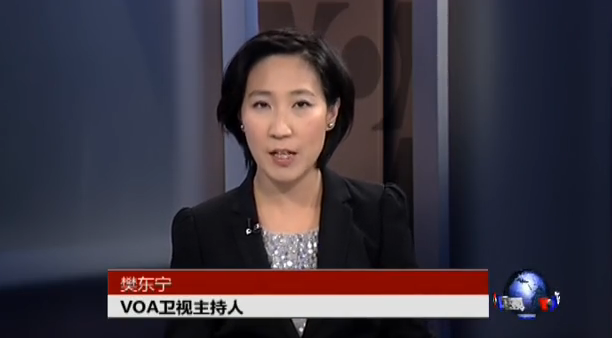BBG Watch Guest Commentary
BBG Watch occasionally publishes guest commentaries. This one is from a current Voice of America journalist who prefers to remain anonymous.
Views expressed here are only those of the authors and not of BBG Watch, its volunteers, or sponsors.
We invite those with opposing views and others who want to comment on this or other issues followed by BBG Watch to submit their op-eds for consideration.
Hong Kong in Crisis, Voice of America Reduces TV to China, Keeps Audiences and Staff In The Dark
By A VOA Journalist
On Monday, September 29, the loyal viewers of Voice of America (VOA) “Weishi,” the VOA Mandarin TV program, were surprised to see their TV screen turned into a blue graphic during some hours when the original program previously aired was repeated. In the place of the professionally produced VOA TV broadcast, audiences received radio signals from Radio Free Asia (RFA).
Audience surveys, although underestimating the viewership because many Chinese are reluctant to share sensitive and potentially dangerous information with strangers, show that the popularity of the 2-year-old VOA “Weishi” is growing by leaps and bounds in China. Some of its segments, including “History’s Mysteries,” “Pro&Con” and “Issues and Opinions,” already also attract many millions of viewers on YouTube. The management’s decision to take away some of the repeat hours from the “Weishi” programs will be devastating to VOA’s Mandarin broadcasting. Meanwhile, it will not help RFA, since very few people listen to radio via TV. If they do, there are existing channels leased by the International Broadcasting Bureau (IBB) to broadcast radio programs via satellite to China and Tibet. IBB reports to the Broadcasting Board of Governors (BBG), the federal agency and the bipartisan Board in charge of all U.S. taxpayer-supported media for audiences abroad.
This decision to broadcast radio via a TV channel is clearly a gigantic waste of taxpayer money, while damaging the journalistic reputation of both VOA and RFA. On the one hand, it will drive the viewers of VOA “Weishi” away; on the other hand, the visual image or, more precisely, the lack of it, makes RFA look extremely unprofessional. This is a loss-loss situation.
The VOA Mandarin Service rank-and-file staff has been neither consulted nor informed of the decision until it was executed. Just as their viewers, the VOA Mandarin staff were surprised and dismayed by the sudden drop of several hours of their program’s scheduled repeats, some of them in very popular time slots for people who were unable to watch the original VOA Chinese broadcast.
Researches and surveys constantly show that VOA Mandarin broadcasting is among the most influential, most respected, and most listened/viewed international programs targeting China in vernacular languages. Unfortunately, the ever growing BBG’s International Broadcasting Bureau and the expanding VOA’s senior management also constantly target VOA Mandarin programming for cuts and reductions; once they even proposed to eliminate the entire radio and TV in Mandarin and later in Cantonese, the main language in Hong Kong. Meanwhile, the Chinese government is spending billions for their public diplomacy, and established cable channels in the United States. The “dysfunctional” BBG, as Secretary Clinton once said, is clearly not up to the challenge.

